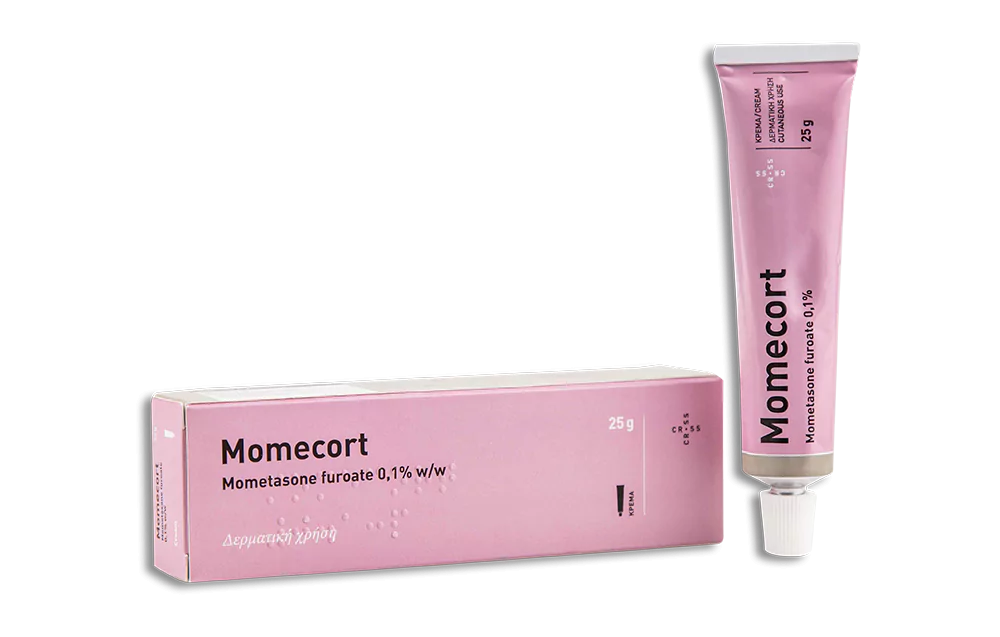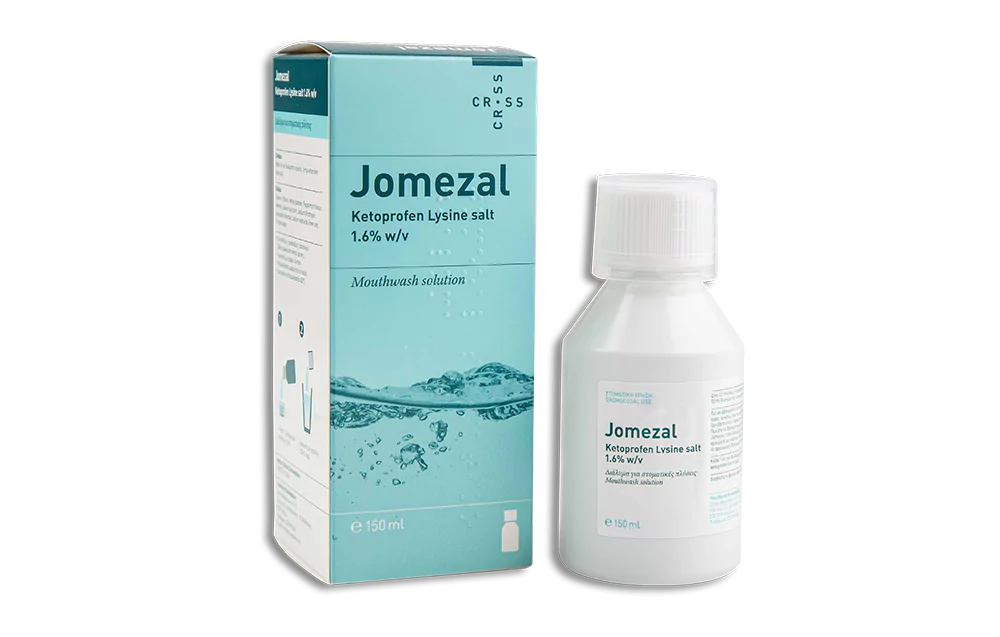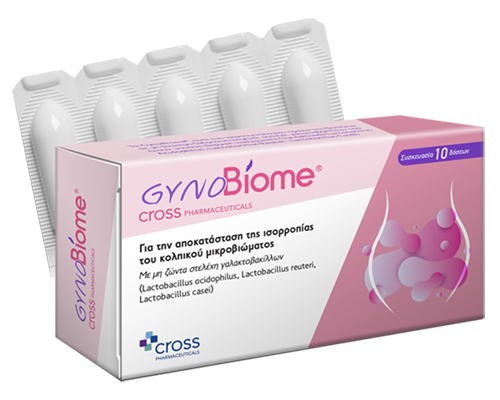7+1 advantages of probiotics

The gut microbiome is the set of microorganisms and their genes that are naturally found in our gastrointestinal tract. It is formed at birth and is our ally against infections from pathogenic microorganisms. Maintaining a balanced microbiome is directly related to the proper functioning of our gut and immune system.
Probiotics, as we have mentioned here before, are living microorganisms (1) that colonise the gut and in sufficient quantities contribute to the balance of the gut microbiome.
More and more studies are showing that the balance or imbalance of bacteria in the gut is associated with overall health or disease. Beyond that, however, there are so many other benefits of taking probiotics regularly.
1. Probiotics help restore the balance of the gut microbiome
Probiotics include ‘body-friendly’ bacteria, which offer a number of important benefits for body function, such as restoring the balance of the gut microbiome (2). A state of imbalance occurs when the population of ‘harmful’ bacteria is greater than that of ‘friendly’ bacteria. This can be the result of disease, medication such as antibiotics, poor diet, etc. Symptoms of this imbalance include problems with digestion, mood disorders, obesity and many others (3).
Probiotics can be obtained from specific foods (fermentation products) or as dietary supplements.
2. Probiotics help prevent and treat diarrhoea
Probiotics are widely known for their ability to prevent diarrhoea or reduce its intensity.
Diarrhoea is a very common side effect of taking antibiotics. This is because antibiotics have no selectivity for which bacteria to target, so they destroy both pathogens and beneficial bacteria (4).
Many studies suggest that probiotic use is associated with a reduced risk of diarrhoea as a side effect of antibiotic treatment (5,6,7) and in particular that taking probiotics reduces the likelihood of antibiotic-associated diarrhoea by 42% (8).
Probiotics also help to treat diarrhoea , which is not associated with antibiotics. A review of 35 studies showed that there are specific probiotic strains that can reduce the duration of viral diarrhoea by one day (25 hours) (9).
Probiotics reduced the risk of traveller’s diarrhoea by 8% and also reduced the likelihood of diarrhoea of other causes by 57% in children and 26% in adults (10).
The effectiveness of probiotics varies, of course, depending on the bacterial strain and the amount in which it is ingested by the body (11).
Strains such as Lactobacillus rhamnosus, Lactobacillus casei and the fungus Saccharomyces boulardii are most often associated with a reduced likelihood of diarrhoea (12,13).
3. Dietary supplements with probiotics contribute to mental health
More and more studies are linking a healthy gut microbiome to mood and mental health (14).
An analysis of 15 studies concluded that supplementation with Bifidobacterium and Lactobacillus strains for 1-2 months can improve anxiety, depression, help with autism symptoms, OCD and memory (14).
A team of scientists studied the effect of consuming probiotic-enhanced yoghurt in 70 people for 6 weeks and found that those who took probiotics on a daily basis showed improvements in mood (from anxiety, stress, depression) and overall health (15).
4. Some strains contribute positively to cardiovascular health.
Probiotics can contribute to heart health by reducing “bad” LDL cholesterol in the blood, as well as blood pressure.
Some bacteria, which produce lactic acid, can reduce cholesterol by breaking down bile (16). The function of bile is to aid the process of digestion and is normally composed mostly of cholesterol. The breakdown of cholesterol therefore prevents its intestinal absorption and thus reduces the amount entering the bloodstream (17).
5. Probiotics can reduce allergy or eczema symptoms.
Specific probiotic strains reduce the incidence of eczema in children and infants. One study found that infants who received milk fortified with probiotics had an improvement in their eczema compared to infants who did not receive probiotics in their milk (18).
Another study of children and women who had taken probiotics during pregnancy showed that children were 83% less likely to develop eczema in the first 2 years of life (19).
6. Probiotics reduce the symptoms of certain gastrointestinal diseases.
Certain probiotic strains, such as Bifidobacterium and Lactobacillus, have helped improve symptoms in ulcerative colitis (20). Probiotics also appear to help in other intestinal conditions, such as irritable bowel syndrome (21).
7. Probiotics boost the immune system.
Probiotics strengthen the immune system and prevent the growth of pathogens (22).
Also, some probiotics appear to promote the production of antibodies by activating the production of T-lymphocytes and natural killer cells (23,24).
The results of a study in children showed that the use of Lactobacillus GG reduced the incidence and severity of lung infections by 17% (25).
+1 Probiotics contribute to weight and fat loss.
Probiotics contribute to weight loss through several processes26. For example, some prevent fat absorption in the gut. This fat is eliminated in the stool and is not stored in the body (27,28).
Probiotics help prolong the feeling of fullness, burn more calories and store less fat. This is due to an increase in certain hormones, such as GLP-1 (29,30).
One study showed that women who took Lactobacillus rhamnosus for 3 months lost 50% more weight than women who did not take a probiotic (31).
Another study of 210 people showed that taking Lactobacillus gasseri, even in small amounts, for 12 weeks led to an 8.5% reduction in abdominal fat (32).
However, it should be noted that not all strains contribute to weight loss.
The best way to enjoy the benefits of probiotics!
Probiotics can be taken either through food or through special dietary supplements.
The proposal of CROSS PHARMACEUTICALS is LactoBiome. It is a symbiotic formula with probiotics, prebiotics and B vitamins to balance and restore the intestinal microbiome, with 5 billion live bacterial strains (LGG, S. boulardii, L. acidophilus, L. bulgaricus, S. Thermophilus, Bifidobacterium bifidum).
Probiotics are also found in fermentation products such as yoghurt, kefir, sauerkraut, pickles, etc.
It is important to know that the quantity of probiotic strains plays a very important role, as in small quantities they do not have the desired effects, while in large quantities, there may be side effects. Most studies recommend 1-100 billion live bacterial strains (CFU)/day.
1. https://pubmed.ncbi.nlm.nih.gov/24912386/
2. https://pubmed.ncbi.nlm.nih.gov/15481739/
3. https://pubmed.ncbi.nlm.nih.gov/22424233/
4. https://pubmed.ncbi.nlm.nih.gov/19018661/
5. https://pubmed.ncbi.nlm.nih.gov/26695080/
6. https://pubmed.ncbi.nlm.nih.gov/22570464/
7. https://pubmed.ncbi.nlm.nih.gov/22071814/
8. https://pubmed.ncbi.nlm.nih.gov/22570464/
9. https://pubmed.ncbi.nlm.nih.gov/21069673/
10. https://pubmed.ncbi.nlm.nih.gov/16728323/
11. https://pubmed.ncbi.nlm.nih.gov/18542041/
12. https://pubmed.ncbi.nlm.nih.gov/22071814/
13. https://pubmed.ncbi.nlm.nih.gov/16728323/
14. https://pubmed.ncbi.nlm.nih.gov/25862297/
15. https://pubmed.ncbi.nlm.nih.gov/25879690/
16. https://pubmed.ncbi.nlm.nih.gov/22611376/
17. https://pubmed.ncbi.nlm.nih.gov/22611376/
18. https://pubmed.ncbi.nlm.nih.gov/11069570/
19. https://pubmed.ncbi.nlm.nih.gov/23083673/
20. https://pubmed.ncbi.nlm.nih.gov/25793197/
21. https://pubmed.ncbi.nlm.nih.gov/19091823/
22. https://pubmed.ncbi.nlm.nih.gov/12801956/
23. https://pubmed.ncbi.nlm.nih.gov/14557292/
24. https://pubmed.ncbi.nlm.nih.gov/12369194/
25. https://pubmed.ncbi.nlm.nih.gov/11387176/
26. https://pubmed.ncbi.nlm.nih.gov/24070562/
27. https://pubmed.ncbi.nlm.nih.gov/25884980/
28. https://pubmed.ncbi.nlm.nih.gov/18684338/
29. https://pubmed.ncbi.nlm.nih.gov/23836895/
30. https://pubmed.ncbi.nlm.nih.gov/20927337/
31. https://pubmed.ncbi.nlm.nih.gov/24299712/ 32. https://pubmed.ncbi.nlm.nih.gov/23614897/



